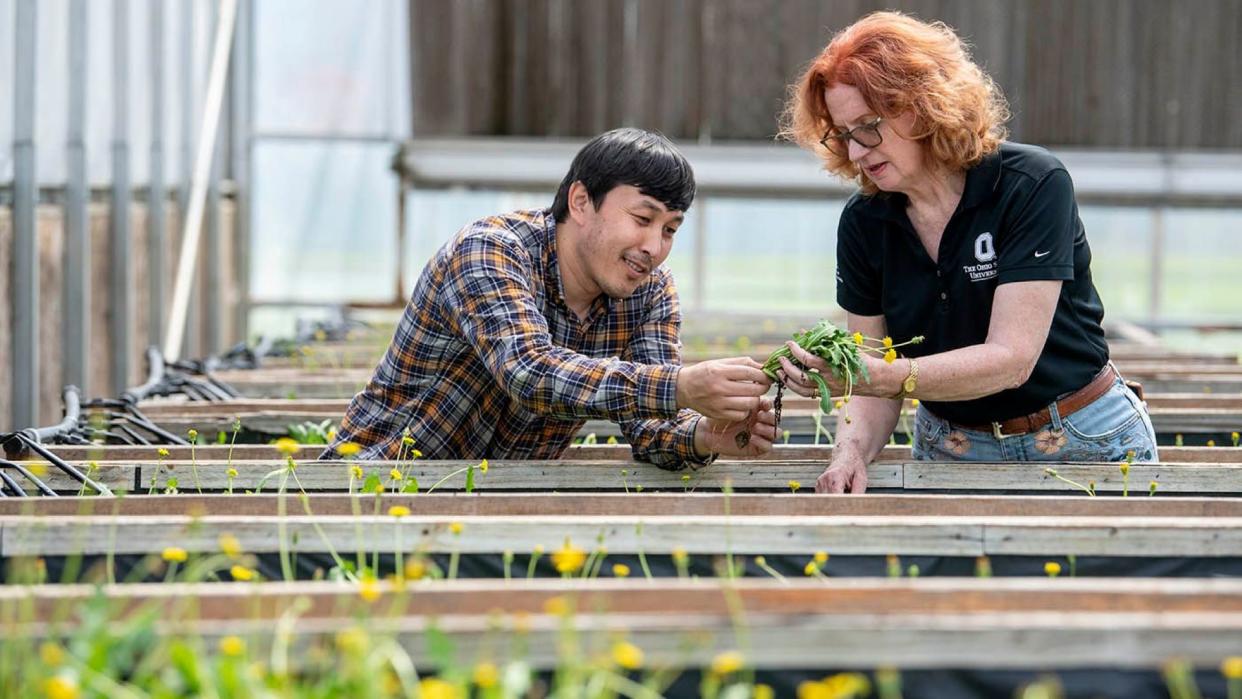Researchers explore dandelions as an alternative crop to rubber: 'A new industry … that currently doesn't exist'

Innovative alternatives to rubber could revolutionize the agriculture industry and help us bounce back from rising global temperatures.
According to AP News, Ohio State University professor Dr. Katrina Cornish has been raising dandelions and desert shrubs that produce flexible rubberlike materials, which are then transformed into essential products like medical gloves and trachea tube parts.
These developments continue to follow a positive trend in agriculture across the United States towards utilizing tough, drought-resistant crops in new ways.
For example, Arizona's water-efficient guayule shrubs can be grown using half as much water as plants like cotton or alfalfa, and they have already been tested as a form of natural rubber to be used in Bridgestone tires.
Bill Niaura, Bridgestone's executive director of sustainable innovation, described guayule as "a specialty crop," and the company's decade-long exploration of its practical uses presents an opportunity to "develop a new industry for the Americas that currently doesn't exist."
These natural rubbers are a renewable resource, which means they can be regrown and harvested again without depleting the Earth's resources.
Watch now: Grocery store executive reveals simple ways the chain slashes its operating costs
Synthetic rubber, on the other hand, is made from petroleum, a nonrenewable resource. It also shares some of the same environmental issues as plastic, such as the reliance on dirty energy sources, like gas, oil, and coal, and the potential for pollution.
Rubber alternatives can also help combat the spread of microplastics such as tire wear particles polluting waterways and ecosystems.
Thankfully, plant-based swaps for plastic materials are on the rise, including FabricNano's bioplastics, Goodyear's soybean-based tires, tentree's kapok fiber clothing, bamboo baby diapers, and even a plastic-free plastic wrap made from potatoes.
By switching to resources that are renewable and less water-intensive, we can help ensure more earth-friendly farming and manufacturing practices as well as a cleaner, cooler planet for all.
Dr. Cornish remarked that her "job isn't done" until natural rubber production from latex-producing crops is a permanent feature of the United States' industrial landscape.
"There's plenty of farmers wanting to farm it, and plenty of manufacturers will buy it. But getting that process and infrastructure in place is really difficult," she said in an Ohio State University article.
"Unfortunately, much of the U.S. industry and government is reactive instead of proactive. They wait for disaster and disaster is, quite honestly, inevitable. We've got to get ahead of it," Dr. Cornish insisted.
Join our free newsletter for cool news and cool tips that make it easy to help yourself while helping the planet.

